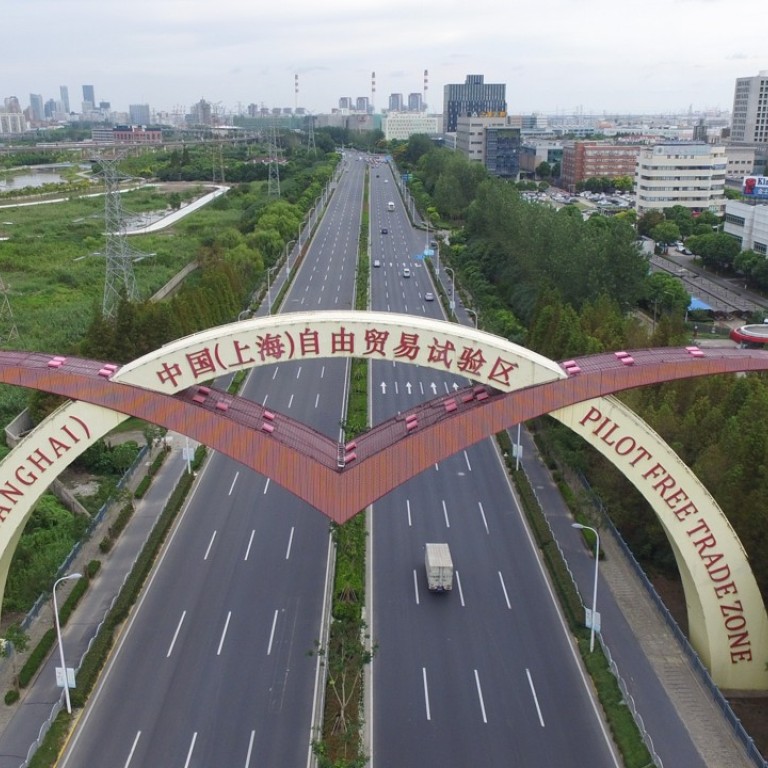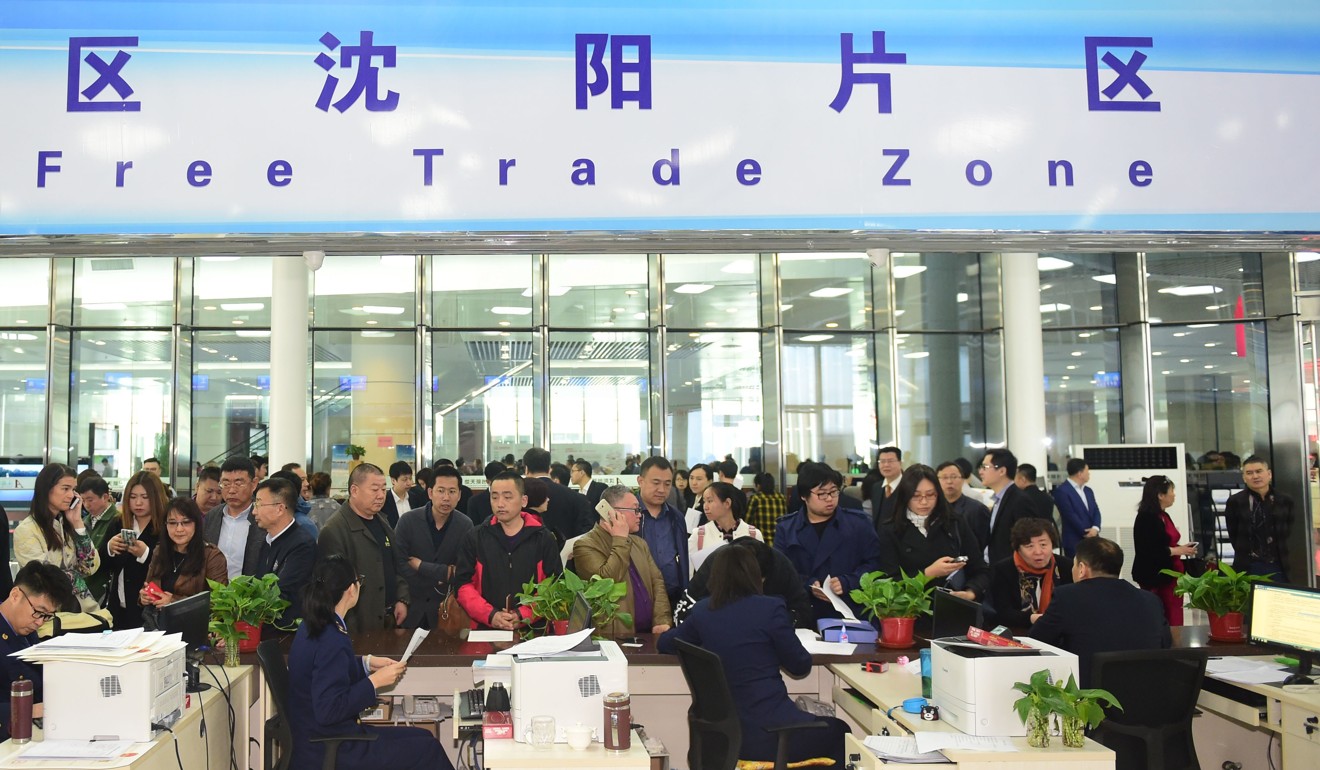
Breaking | China State Council guideline prioritises land use for free-trade zones, sets stage for further liberalisation
- Priority will be given to development of FTZs when authorities map out land use plans, according to guideline
- Shanghai vice mayor says city’s FTZ to be expanded, will be ‘very big’ in future
China’s State Council issued a guideline on Friday prioritising land use for the country’s 12 free-trade zones. All ministerial-level authorities and local governments have been urged to build these zones into gateways that connect foreign investors with the mainland economy.
The guideline is being viewed as a precursor to a series of drastic liberalisations, which follow comments by Chinese President Xi Jinping on November 5 that Shanghai would get a much larger FTZ with fresh incentives to attract global investors. He was speaking during the opening of the China International Import Expo.
President Xi breathes new life into Shanghai FTZ as he hopes to replicate reforms across China
According to the guideline, “priority will be given to the development of FTZs” when authorities map out land use plans. It said: “Healthy and orderly development of the zones will be ensured.”
Wu Qing, a Shanghai vice mayor, told reporters on the sidelines of the expo that the expanded FTZ would be “very big”, but did not disclose details of it size and of new area to be added. Shanghai’s FTZ, established in 2013, was dubbed a mini-Hong Kong, but liberalisation inside the 120 square kilometre zone have failed to live up to investors’ expectations so far.
There has been some speculation that the FTZ in Shanghai would be expanded to include the whole Pudong area, which covers 1,200 square kilometres.
“The ultimate goal is to facilitate cross-border commodity and fund flows, to create a friendly business environment for foreign investors,” said Chen Bo, a professor at the Huazhong University of Science and Technology and adviser to local governments including that of Shanghai. “A larger geographic size will have some substance, given the leadership’s resolution to deepen reforms.”
Beijing has been working to widen overseas investors’ access to the vast mainland market this year, after the US-China trade war triggered concerns about the outlook for the Chinese economy and caused some foreign businesses to consider moving their production out of China.
Healthy and orderly development of the zones will be ensured
Another benefit the expanded zones could bring to businesses are special bank accounts that will help more companies across the city conduct cross-border trade and investment without having to go through the mainland’s lengthy foreign-exchange procedures.
At the Shanghai FTZ, the so-called free-trade (FT) accounts are instrumental to the free flow of cash across borders. These accounts were first introduced to the FTZ in 2015, and were seen as a preliminary step in liberalising the yuan’s capital account.
Companies can use these accounts, which are considered offshore accounts for official purposes, to borrow funds outside mainland China, where interest rates can be lower. Banking authorities allow free capital flows through the FT accounts.
“We also expect to see more foreign manufacturing facilities in the expanded zone, because it can largely save our costs [as opposed] to buying foreign-made materials,” said Han Haifeng, chief executive of Shanghai New Era Printing, a printing company that buys foreign-made machines to enhance its business efficiency. “After all, the existing FTZ is not a free marketplace as expected because there are still many restrictions for local and overseas companies to do businesses.”

The State Council also said qualified individuals in FTZs would be allowed to invest in overseas securities. Presently, mainland residents can only buy overseas-listed stocks through limited channels such as the stock connect schemes linking the mainland markets with the Hong Kong stock exchange.
The State Council also announced that Hong Kong and Macau builders registered in FTZs will be treated as equals to their mainland counterparts.
Thomas Tse, chief executive of the Hong Kong Construction Association, said the organisation had been in talks with the Guangdong government about the liberalisation for nearly a year, and that Hong Kong builders would have widened access to property projects in Qianhai and Hengqin.
Additional reporting by Sandy Li

